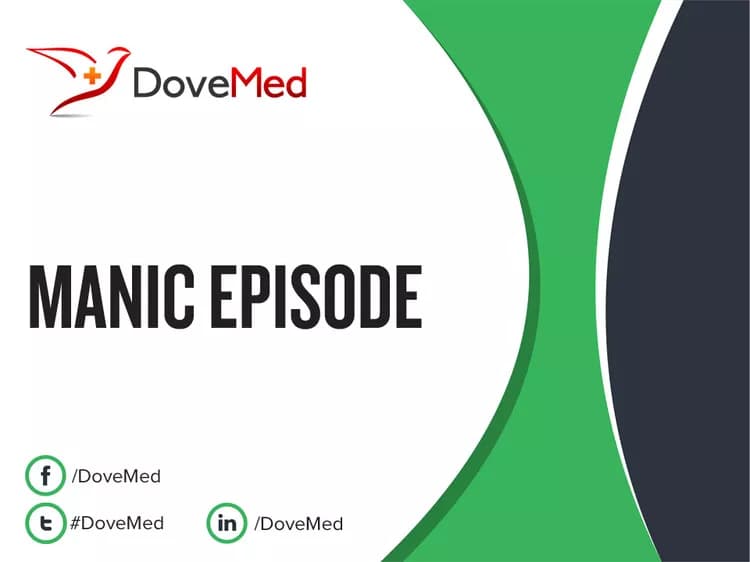What are the other Names for this Condition? (Also known as/Synonyms)
- Bipolar Disorder, Single Manic Episode
- Mania
- Mixed Affective Episode causing Mania
What is Manic Episode? (Definition/Background Information)
- Manic Episode is a period of mood disturbance, during which an individual experiences persistently elevated, expansive, and/or irritable mood, for at least 1 week or longer duration
- Such symptoms can occur due to many other causes too. However, to be called a Manic Episode, the symptoms should not be due to any drugs or any other defined conditions. It usually occurs as a part of bipolar disorder
- Young and middle aged adults are commonly affected with changes in their personal and social behavior that is characterized by increased talkativeness, irritability, and reduced sleep
- Such individuals have elevated or impaired and often indiscriminate involvement in social, work, or school activities, leading to a variety of social issues
- Medications, psychological counseling, and talk therapies, may be used in the treatment of Manic Episodes. With treatment, the prognosis for Manic Episode is generally good
Who gets Manic Episode? (Age and Sex Distribution)
- Manic Episode has similar age and gender distribution as bipolar disorder. It has a worldwide distribution
- First Manic Episodes usually occur around the early 20s. It is uncommon after age 65, or in childhood
- Both males and females are equally likely to suffer from Manic Episodes
- All racial/ethnic groups and socioeconomic classes are affected
What are the Risk Factors for Manic Episode? (Predisposing Factors)
The risk factors of Manic Episode include:
- If a family member has bipolar disorder, then there is an increased risk of developing the disorder
- Even though men and women are equally affected by bipolar disorder, it has been noted that Manic Episode may be among the first symptoms in men. The reason for this is unknown
What are the Causes of Manic Episode? (Etiology)
- The exact cause of Manic Episode is currently unknown
- However, some researchers believe that the disorder may be due to an imbalance of neurochemicals in brain. These chemicals allow the cells of the brain to communicate with one another, in order to carry out all normal brain functions
What are the Signs and Symptoms of Manic Episode?
The signs and symptoms of Manic Episode may include:
- Inflated self-esteem or superiority
- Decreased need for sleep
- Being more talkative than usual
- Thinking about lots of ideas
- Easily distractible
- Increased social, school, work, or sexual activity
- Engaging in unrestrained buying spree, or foolish business investments
- Participating in activities that are essentially ‘pleasurable’
The combination of signs and symptoms vary from one individual to another.
How is Manic Episode Diagnosed?
There are no specific laboratory tests for the diagnosis of Manic Episodes. However, the healthcare provider may consider the following tests and exams:
- A complete physical examination and a thorough medical history evaluation
- The physician may diagnose the disorder by talking with the individuals about their thinking, feelings, and how these affect their daily life
- A few blood tests may be performed to determine, if for other medical conditions may be causing the abnormal signs and symptoms
What are the possible Complications of Manic Episode?
If left untreated, Manic Episodes may cause complications, such as:
- Mood changes may become frequent and unpredictable, which may drastically reduce their school performance and/or affect work productivity
- Relationships with one’s family members and friends may be severely affected causing additional social stress
- The affected individual may try to physically hurt themselves or even commit suicide
How is Manic Episode Treated?
The following are some treatments methods for Manic Episode:
- Manic Episodes are usually treated by medications and counseling (including talk therapy)
- There are many different types of medications that can be used to treat Manic Episode
- Medications may help stabilize one’s mood. However, it may take time to find the right medication or combination of medications, for each individual
- Individuals are encouraged to join local support groups
How can Manic Episode be Prevented?
A Manic Episode may not be prevented; however, one could do the following to prevent future mood changes:
- Keep track of medications taken and changes in signs and symptoms. This will help your healthcare provider determine the type of medication and dosage that is needed to manage the signs and symptoms. Individuals respond differently to different types and dosage of medications
- In some individuals, the healthcare provider may have to try different combinations of medications to achieve optimal results
- Attend talk therapy sessions regularly
- Have a good family and friends’ circle - the support of family and friends is very important in decreasing social issues due to Manic Episode
- Join a suitable support group
What is the Prognosis of Manic Episode? (Outcomes/Resolutions)
- The prognosis of Manic Episode is good in a majority of individuals. Many individuals are able live normal lives with proper medication and help from family, friends, and support groups
- Untreated Manic Episodes may lead to complications that have the potential to disrupt one’s normal life, strain relationships, and even promote violence against ‘self’
Additional and Relevant Useful Information for Manic Episode:
Even though medications and talk therapy help most patients, sometimes the mood changes may return. The treatment may be complicated when an individual start taking illicit drugs, or may harbor thoughts of hurting themselves. If any of such events occur, then it is important to consult the healthcare provider or physician immediately.
Related Articles
Test Your Knowledge
Asked by users
Related Centers
Related Specialties
Related Physicians
Related Procedures
Related Resources
Join DoveHubs
and connect with fellow professionals


0 Comments
Please log in to post a comment.